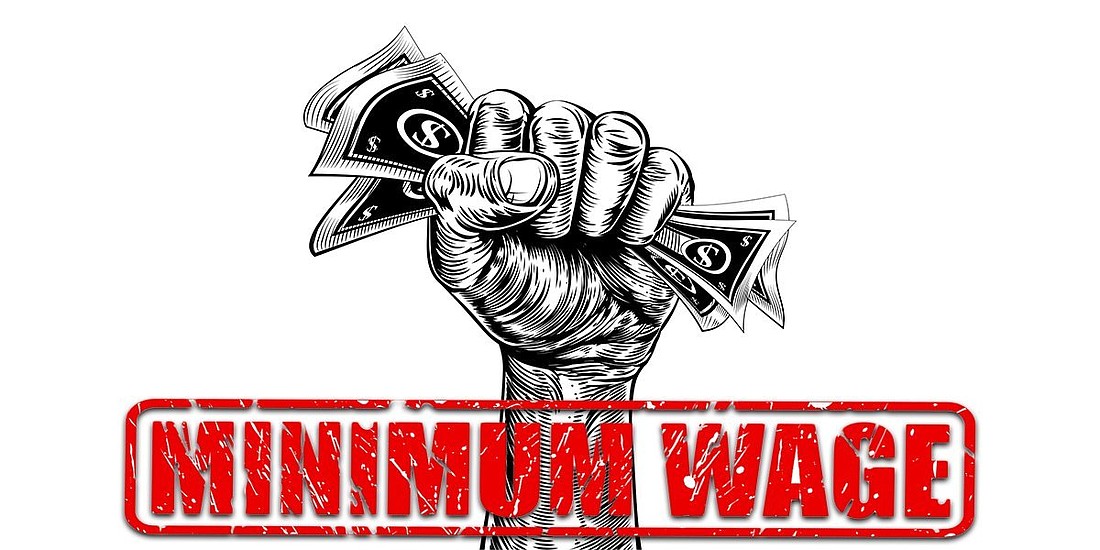- April 17, 2024
-
-
Loading

Loading

It is likely that Florida voters in 2020 will decide whether the state should move to a $15-an-hour minimum wage.
That decision will have significant consequences for Florida workers and the Florida economy. It’s important that people understand some basic fundamentals about minimum wages and their effects, good and bad, on workers.
It’s harder to understand the pros and cons of raising the minimum wage because of disagreements among studies on the effect of a higher minimum. Basic economic theory and experience plainly says that raising the minimum wage will raise pay for some workers but have offsetting negative facts on other workers, on consumers or on businesses. And the vast majority of economists believe that to be true.
Seattle was one of the first large cities to move toward a $15 minimum wage. Research by the University of Washington following the effect of the higher minimum wage has found “low-income workers who log longer hours and are more experienced have seen a boost in pay, but those with less experience are finding fewer jobs open to them.”
In New York City, where a $15-an-hour minimum wage just started this year, a survey says that up to 75% of restaurants plan to cut back on hours for workers in response to the wage hike, and some restaurants are already cutting back hours or laying off employees and blaming the higher minimum wage.
But other studies disagree, such as one by the Center on Wage and Employment Dynamics at the University of California, Berkeley, looking at Seattle and other cities and finding raising the minimum wage increased pay for workers without any adverse effects on their employment.
In reality, it is extremely difficult to separate the effects of raising the minimum wage from myriad other factors that influence how many hours workers get or how many unskilled workers get hired. This is especially true in a local economy that is experiencing significant growth.
But, we all know that “there’s no such thing as a free lunch.” If employers are forced to raise wages for workers, that money has to come from somewhere. They can cut back on hours or the number of workers, but work still needs to be done. The workers who remain may have to be more productive to justify their higher wages.
Or, businesses can reduce their profits, which means they have less money to invest in expansion, updates, advertising and maintenance, basic things that grow their business and grow employment. Or, they can raise prices and pass the cost of higher wages on to the customers, which will make customers shift their spending accordingly. In other words, there are trade-offs.
In Florida, around 40% of hourly workers make less than $15 an hour. If an employee who was making $14 an hour with several years of experience gets a high-school-aged colleague who is paid the minimum wage of $15 an hour, does it make sense to give the employee with experience a $1 an hour raise to match the minimum wage? Is that fair? No.
Most likely the employer will have to significantly raise the wage of the existing employees who make more than the current minimum wage but less than $15 an hour, which magnifies the overall negative effect of the rising minimum-wage.
A higher minimum wage certainly helps those workers who stand to get paid more, but hurts those who don’t. A local ice cream store owner told me at $15 an hour she could hire older full-time workers and wouldn’t employ many part-time high school and college age workers any more.
The mix of employees changes at different wage levels. As the accompanying graph shows, we can already see those effects as rising minimum wages around the nation have reduced the number of teenagers in the workforce.
And then, there is automation to consider. At $15 an hour, a kiosk or other form of technology driven by advances in artificial intelligence and communications starts to be a lot more competitive than an unskilled worker.
In the debate over raising minimum wage, we will often hear the argument that it’s impossible to live on or support a family on the minimum wage. Yes, that is correct. The minimum wage is the wage paid to the newest, least-skilled, and most easily replaced employees in the market.
The nature of unskilled, entry-level jobs provides plenty of competition to fill positions at the lowest wage offered. Making a living and supporting a family is not the purpose of minimum-wage work.
Minimum wages are for unskilled, part-time workers, people trying to add some income, and temporary pay for new workers before they gain experience or skills and move up the wage ladder.
They are not a position where you stay and expect to make a living.
But that reality of individual struggles to move beyond a minimum wage does not mean the minimum wage needs to be raised.
It means we need to make it easier for people to move up and beyond minimum-wage jobs, and allow the minimum wage to remain in its crucial role for temporary, entry-level pay.
Adrian Moore is vice president at Reason Foundation and lives in Sarasota.